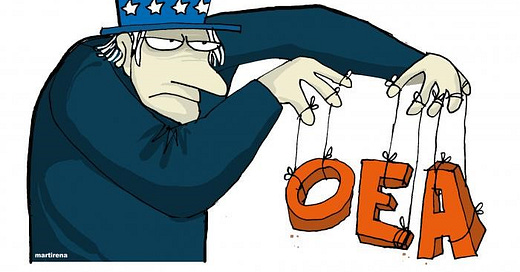The Organization of American States announced on July 27 the convocation of an online meeting for July 28 of its Permanent Council for the purpose of analyzing the situation in Cuba in the wake of the July 11 disturbances on the island.
Upon the announcement of the meeting, Cuban President Miguel Díaz-Canel characterized the initiative as reminiscent of a shameful past, in which “the discredited minister of the Yankee colonies is called to play his sad role of lackey,” making reference to the Secretary General of OAS, Luis Almagro, who earned the disparaging title of “Minister of the Yankee colonies” with his commentaries and communiques against the governments of Venezuela, Bolivia, and Nicaragua. Meanwhile, the Cuban Minister of Foreign Relations, Bruno Rodríguez, described the initiative as an effort to mobilize the OAS toward the fulfillment of its traditional role of “service to the interests of Washington,” in which capacity it has supported military interventions an…


